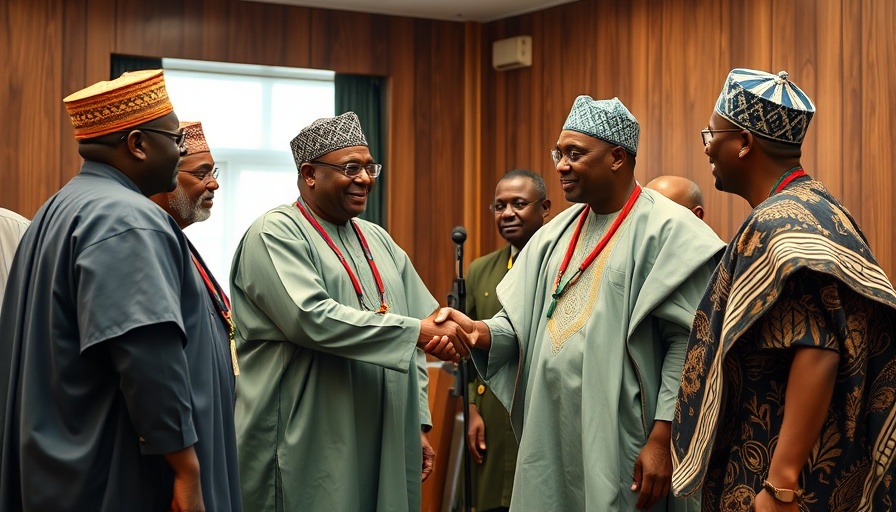
Governance in Nigeria: A Call to Action
In the recent video titled “Governors should serve the people, not Abuja!” a provocative discussion unfolds around the role of Nigerian governors within the current political structure. The video, which stresses the importance of local governance, raises critical questions about accountability and the distribution of power in one of Africa's most populous nations.
In “Governors should serve the people, not Abuja!”, the discussion dives into the governance challenges in Nigeria, prompting deeper analysis into the need for empowered local leaders.
Empowering Local Governance: Historical Context and Background
The concept of local governance traces its roots back to the need for decentralization witnessed across various African nations. For many, local governance is the backbone of democracy—empowering individuals closer to their communities to take charge of their own affairs. Yet in Nigeria, with its complex political landscape, governors often find themselves in a tug-of-war between local needs and directives that filter down from the Federal Government in Abuja.
This ongoing struggle poses a significant challenge to how effective governance can truly be. The concerns raised in the video echo sentiments from past discussions and debates on state versus federal power, and whether governance can genuinely serve the needs of the people when overshadowed by federal influence.
The Emotional Toll: Why Governance Matters
Understanding the gravity of effective governance is essential, particularly as it directly impacts the welfare and development of the populace. For many citizens, this isn't just a matter of political interest; it's personal. The decisions made by governors influence their daily lives—affecting financial stability, educational opportunities, and public health.
This emotional connection to governance elucidates why it is vital that governors prioritize their constituents above federal expectations. The reluctance to sufficiently assert state rights often leaves citizens feeling neglected and unrepresented, instigating a deep-seated disenchantment with the political system.
Current Events: Parallel Examples in Africa
Situations similar to Nigeria's predicament can be observed throughout the African continent. Countries like South Africa and Kenya have experienced their own governance challenges, where local leaders struggle to exercise autonomy against a backdrop of centralized governmental authority. These parallels highlight a fundamental truth: when local leaders are effectively sidelined, the potential for innovation, local problem-solving, and real accountability diminishes.
Moreover, the ramifications of such governance crises often lead to civil unrest, underscoring the importance of focusing on regions’ distinct needs rather than enforcing blanket policies that may not resonate or be applicable. The video provides a stirring reminder of the prospect and urgency for change within Nigeria’s governance structure.
Future Insights: Trends in Local Governance
Looking towards the future, the implications of embracing local governance are evident. As populations become increasingly urbanized and diverse, opportunities for local leaders to effect change may expand significantly. Emphasizing community-driven development will be pivotal in addressing contemporary issues such as youth unemployment, health crises, and educational access.
Additionally, leveraging technology to enhance governance at the local level can dramatically empower citizens to hold their governors accountable. Seen through this lens, a robust system of local governance may not only restore faith in elected officials but inspire a newer generation of citizens to participate actively in their political landscape.
Decisions You Can Make With This Information
As a concerned citizen or a seasoned observer of Nigerian politics, there are steps individuals can take to advocate for localized governance. Supporting initiatives that promote transparency, attending community meetings, and engaging in political processes are crucial actions. Moreover, starting conversations about the importance of empowered governors can influence public discourse and instigate communal mobilization towards demanding change.
Conclusion: A Collective Responsibility
The notion that “Governors should serve the people, not Abuja!” resonates deeply with the necessity of redefining what governance means in Nigeria. As citizens, leaders, and stakeholders in society, there exists a collective responsibility to ensure that governance serves the populace effectively and equitably. By advocating for localized governance, promoting transparency, and encouraging community involvement, we can work towards a future where the power truly lies in the hands of the people.
 Add Row
Add Row  Add
Add 


Write A Comment